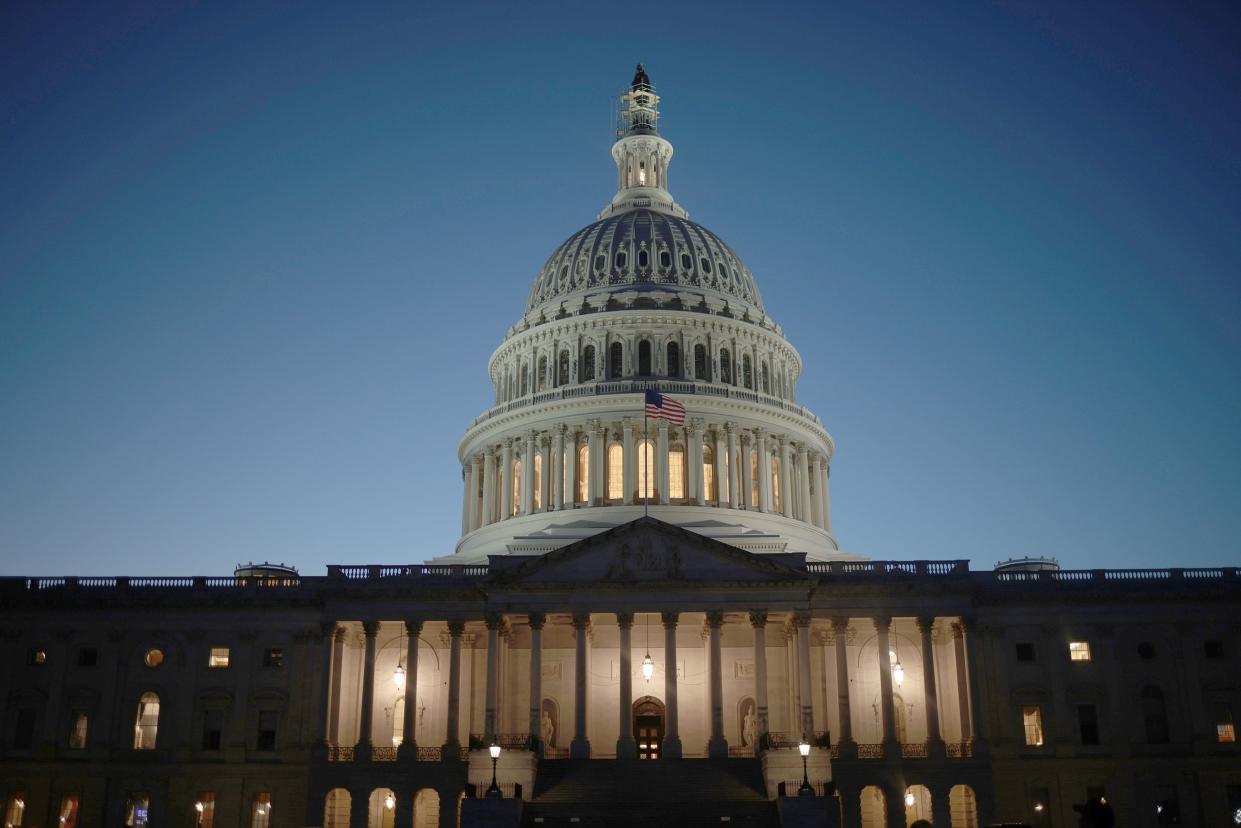Can the courts overrule Congress? | Civics Project

- Oops!Something went wrong.Please try again later.
- Oops!Something went wrong.Please try again later.
- Oops!Something went wrong.Please try again later.
- Oops!Something went wrong.Please try again later.
Q. Why do the courts get to overrule policies passed by Congress?
A. The U.S. Constitution designed the government so that there would be three co-equal branches that check and balance each other. To some degree, each branch can limit or check the other though powers like the Presidential veto, or Congress’ advice and consent for appointments. The United States Supreme Court uses the power of judicial review to interpret or invalidate laws and/or determine if officials have taken actions in violation of law or the Constitution. Technically it does not establish policies, though you can make a plausible argument that striking down a law or executive action can be making policy.
The power of judicial review is not explicitly granted in the Constitution, though it has been part of our system since the Supreme Court declared its authority over the interpretation of the Constitution in Marbury v. Madison (1803). Chief Justice Marshall famously declared, “It is emphatically the duty of the Judicial Department to say what the law is.” That is no small authority, and since the interpretation occurs long after the drafting and writing of legislation, it is often the court and not Congress that gets the last word.
More from Kevin Wagner: Civics column: Does the polling show us that the primaries are already set in stone?
The Marbury decision is a fascinating window into the competing elements of our national government. Incumbent President John Adams had lost his re-election bid to Thomas Jefferson in 1800, but the transition did not occur until March 1801. To consolidate power, the outgoing Federalist-controlled Congress passed the Judiciary Act of 1801. Adams used the law to make judicial appointments through his last day in office.
Federalist William Marbury was one of the last people given a commission as a Justice of the Peace under the new law; however, the commission was not delivered before Adams left office. President Jefferson was not inclined to help these “midnight appointments” and ordered his Secretary of State James Madison to withhold the commission. Marbury filed suit and the case came before the U.S. Supreme Court. Chief Justice Marshall, cleverly observed that Marbury should have been given his commission but that the Judiciary Act of 1801 was unconstitutional in part as it purported to give a new jurisdiction to the Court which was not consistent with the Constitution.
More from Kevin Wagner: The Civics Project: Has American politics always been this bad?
As a technical matter, it was not clear that the Court had the right to make that determination. However, as a practical matter, President Jefferson won the battle over these late appointments, so he likely was not overly concerned with the Court’s reasoning. In truth, Chief Justice Marshall was in a tough spot, as it is quite possible Jefferson would have ignored an adverse ruling. However, in Marbury, Marshall managed to scold Jefferson and Madison, avoid a confrontation, and plant the seed for the Supreme Court to assume a far greater role in governance.
There is some argument that the Court may use its power of judicial review to reach into areas that should be left to the Congress or the President. However, judicial review has become an accepted authority of the Court with limited checks on it. Indeed, it is largely the Supreme Court itself that determines the limits.

Kevin Wagner is a noted constitutional scholar and political science professor at Florida Atlantic University. The answers provided do not necessarily represent the views of the university. If you have a question about how American government and politics work, email him at kwagne15@fau.edu or reach him on Twitter @kevinwagnerphd
This article originally appeared on Palm Beach Post: Civics Project: why courts can overrule Congress policies

